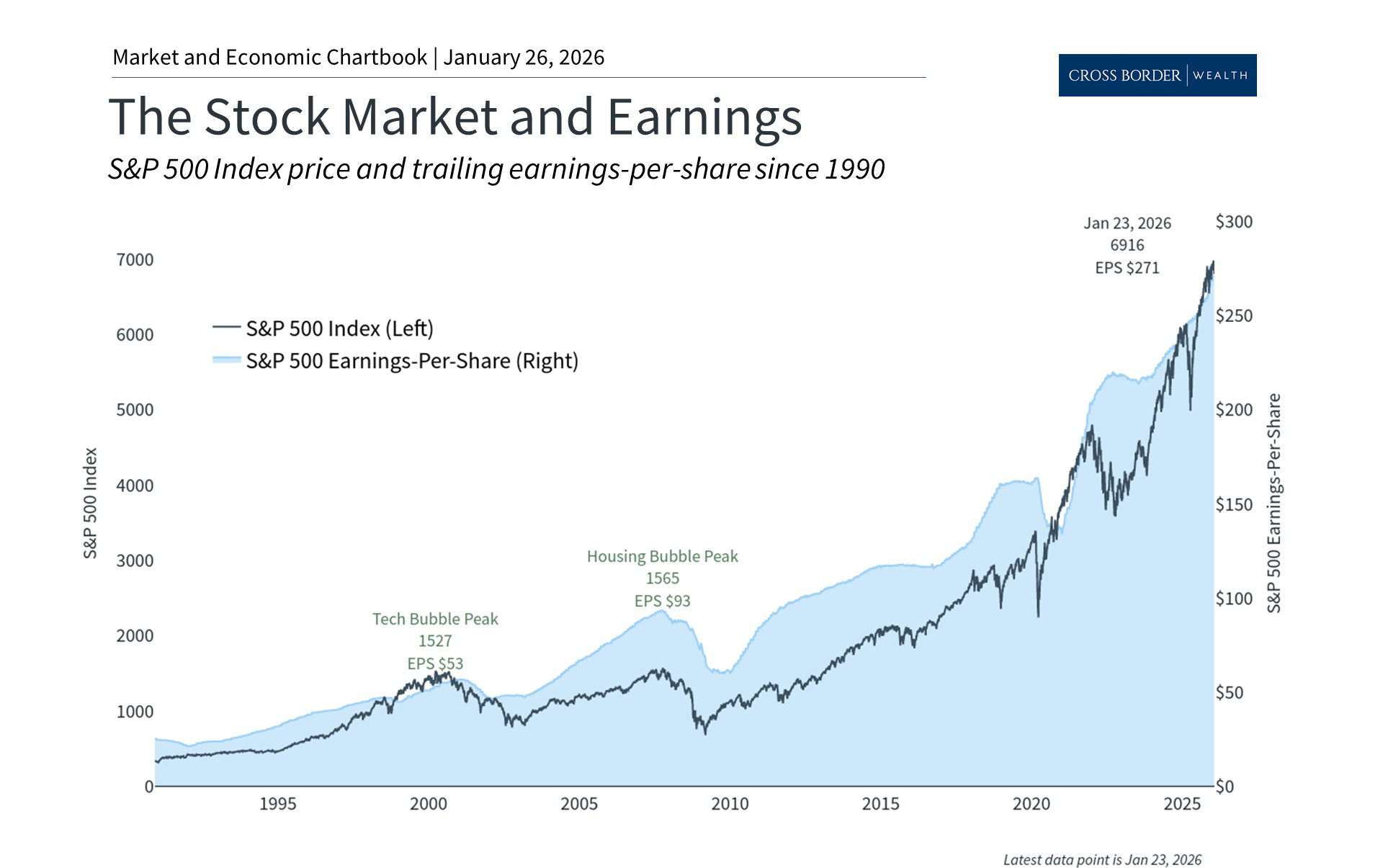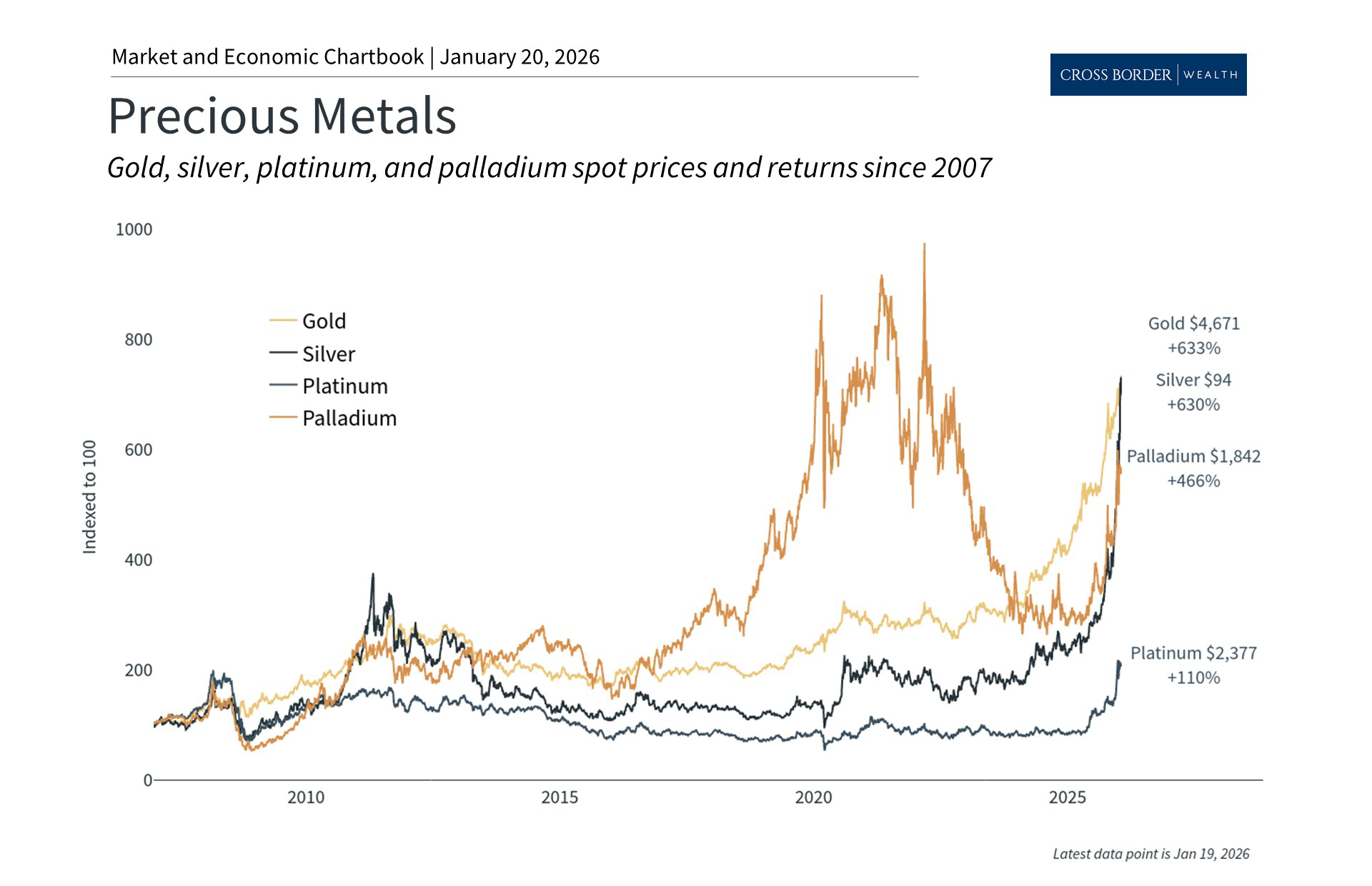Investing Abroad as a US Citizen: Understanding the Challenges
- Global Wealth Management
- 2 mins
The ongoing banking turmoil has created market and economic uncertainty. We weigh in if ‘this time it’s different’ and provide guidance on how long-term investors can navigate the months ahead.
Key Takeaways
- Banking crises are not new, and what all of these historical episodes have in common is the availability of money, the expansion of credit, and the eventual tightening of financial conditions.
- On the surface, there seem to be parallels to the 2008 Financial Crisis, including JPMorgan Chase's acquisition of Bear Stearns. However, there are many distinctions, such as the amount of leverage in the system then.
- Maintain perspective in light of the ongoing banking crisis. During uncertain times, the best approach is to stay diversified and not overreact to news headlines.
Investing can be a complex and challenging process, and it can become even more complicated for US citizens living abroad. The US tax system is notoriously complex and can make investing difficult for those who live outside the country. In this article, we will explore some of the challenges that US persons face when investing while living abroad.
Tax Compliance
One of the most significant challenges for US citizens living abroad is tax compliance. The US tax system requires citizens to pay taxes on their worldwide income, regardless of where they live or work. This means that if you're a US citizen living abroad, you need to file taxes in the US and in the country where you reside.
Furthermore, US tax laws are constantly changing, and it can be challenging to stay up-to-date with the latest regulations. This can make investing difficult, as you may be unaware of tax implications when investing in certain assets.
Limited Investment Options
US citizens living abroad may also face limited investment options. Many US brokers and investment firms may not accept clients who live outside the US. Even if you find a broker who does accept foreign clients, you may find that you're limited to investing in certain assets or that the fees associated with investing are higher.
Currency Risks
Another challenge for US citizens living abroad is currency risk. When you invest in assets denominated in a foreign currency, the value of those assets can be affected by currency fluctuations. This means that if the value of the currency in which you invested declines relative to the US dollar, your investment returns may suffer.
Regulatory Compliance
US citizens living abroad may also be subject to additional regulatory compliance requirements. For example, if you invest in a foreign mutual fund, you may need to file additional forms with the IRS to report your investment. Failure to comply with these requirements can result in fines and penalties.
Time Zone Differences
Finally, time zone differences can also present a challenge for US citizens living abroad. If you need to contact your broker or investment advisor in the US, you may need to do so outside of normal business hours. This can make it difficult to stay informed about your investments and make timely investment decisions.
In conclusion, investing can be challenging for US citizens living abroad. Tax compliance, limited investment options, currency risks, regulatory compliance, and time zone differences are just a few of the challenges that investors may face. However, with careful planning and the help of Cross Border Wealth’s trusted advisors who have extensive experience in managing investments of US citizens like you living abroad, it is possible to navigate these challenges and build a successful investment portfolio.
Cross Border Wealth is a SEC-registered investment adviser which may only transact business in those jurisdictions in which it is registered or qualifies for an exemption or exclusion from registration requirements.
Cross Border Wealth may discuss and display charts, graphs, formulas, stock, and sector picks which are not intended to be used by themselves to determine which securities to buy or sell, or when to buy or sell them. This specific information is limited and should not be used on their own to make investment decisions.
All information provided in this article is for educational purposes only and does not intend to make an offer or solicitation for the sale or purchase of any specific securities, investment, or investment strategies. Please ensure to first consult with a qualified financial adviser and or tax professional. Further, please note that while said information has been obtained from known sources which are believed to be reliable, none of these are guaranteed.


